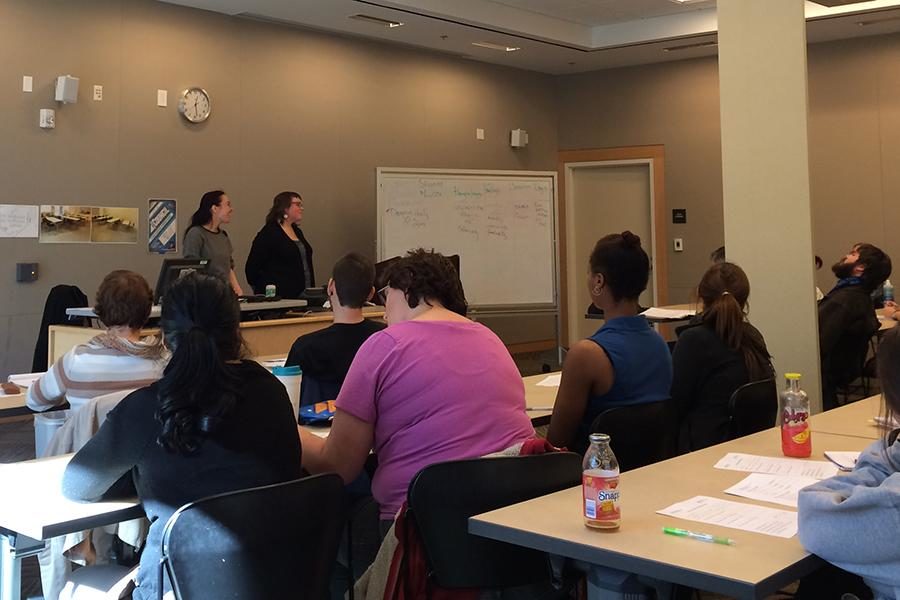Simply rearranging the words in your sentences could make the difference between perceived verbal abuse and effective communication.
Liza Auerbach, an intern at Student Psychological Health Services at Santa Rosa Junior College, addressed the ways we communicate in all aspects of our lives at the Feb. 19 communication workshop at the Bertolini Student Center. From verbal abuse to reflective listening, Auerbach emphasized understanding how to modify words and letters in a positive way to reduce miscommunication and negativity.
“Words can mean different things to different people,” Auerbach said.
She stressed the importance of communicating effectively in relationships. “I think it’s important because it’s the way people can get to know each other and develop closeness,” Auerbach said.
A key aspect of effective communication is reflective listening. The idea in reflective listening is to listen “empathetically” without inserting yourself in to what the other person is saying. In short, it means listening attentively to completely understand what the other person is saying, feeling and thinking and then asking if your understanding is correct before asserting your own opinion, perception or understanding.
Another aspect of effective communication is differentiating between thoughts and feelings. “We’ve gotten in the habit as a society to communicate our feelings even when they’re not an actual feeling,” said SRJC student Cheri McLean. “Anything that’s followed by that is not a feeling.”
The lecture ended with a quick presentation on abusive communication. Abusive communication or verbal abuse includes, but isn’t limited to, intentionally refusing to listen, not allowing another person to have a different point of view and accusing or blaming. To negate verbal abuse, using “I” statements instead of “you” before phrases is helpful.
“I don’t think people understand the resounding aftermath of their words,” McLean said.
“It’s often the people closest to us that we take for granted,” Auerbach said.


